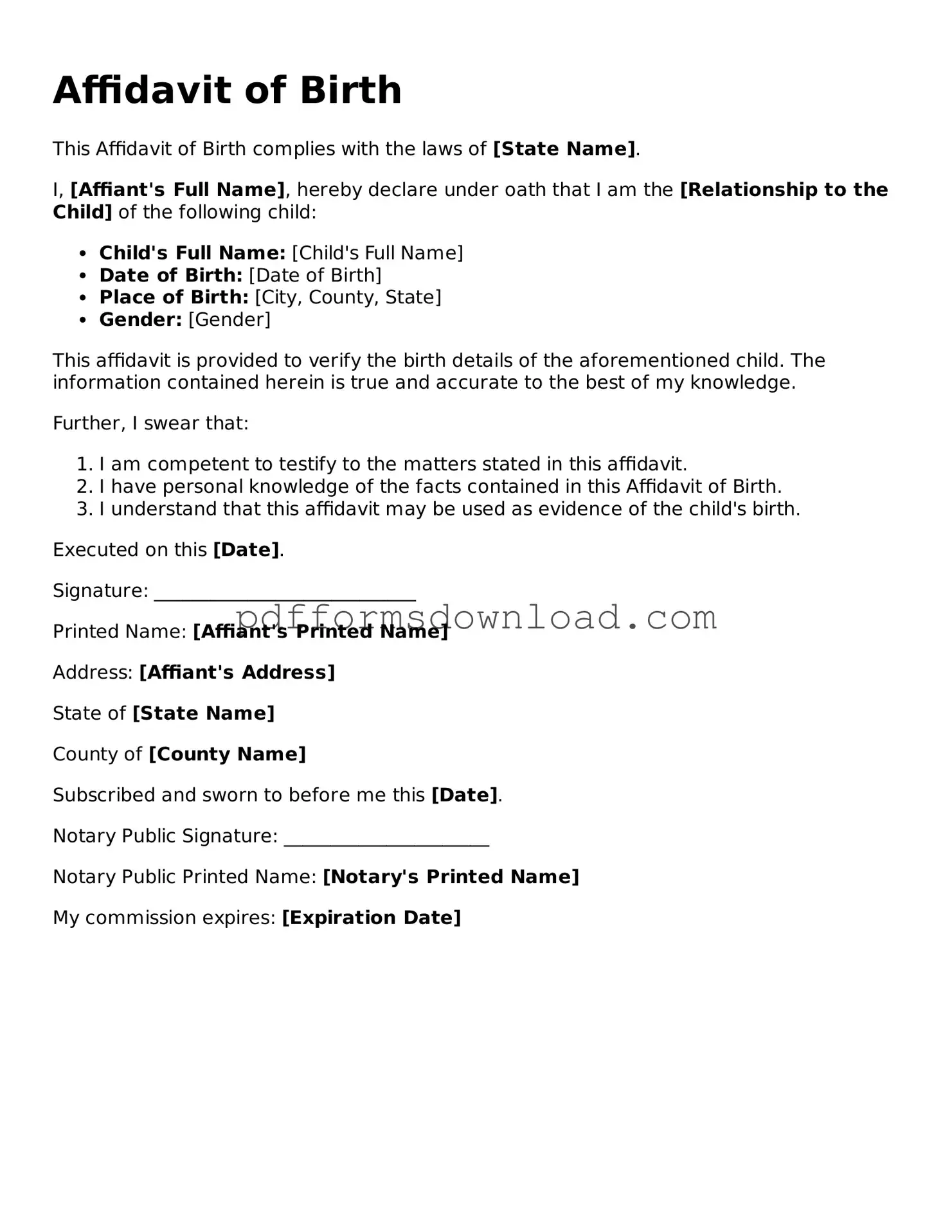Official Affidavit of Birth Document
The Affidavit of Birth is a legal document used to establish a person's birth details when official records are unavailable or incomplete. This form serves as a sworn statement, providing necessary information such as the individual's name, date of birth, and place of birth. Understanding how to accurately fill out this form is crucial for ensuring that birth information is properly documented.
Ready to complete your Affidavit of Birth? Click the button below to get started!
Make This Document Now

Official Affidavit of Birth Document
Make This Document Now

Make This Document Now
or
Free PDF File
Your form is almost ready
Complete your Affidavit of Birth online — edit, save, and download easily.